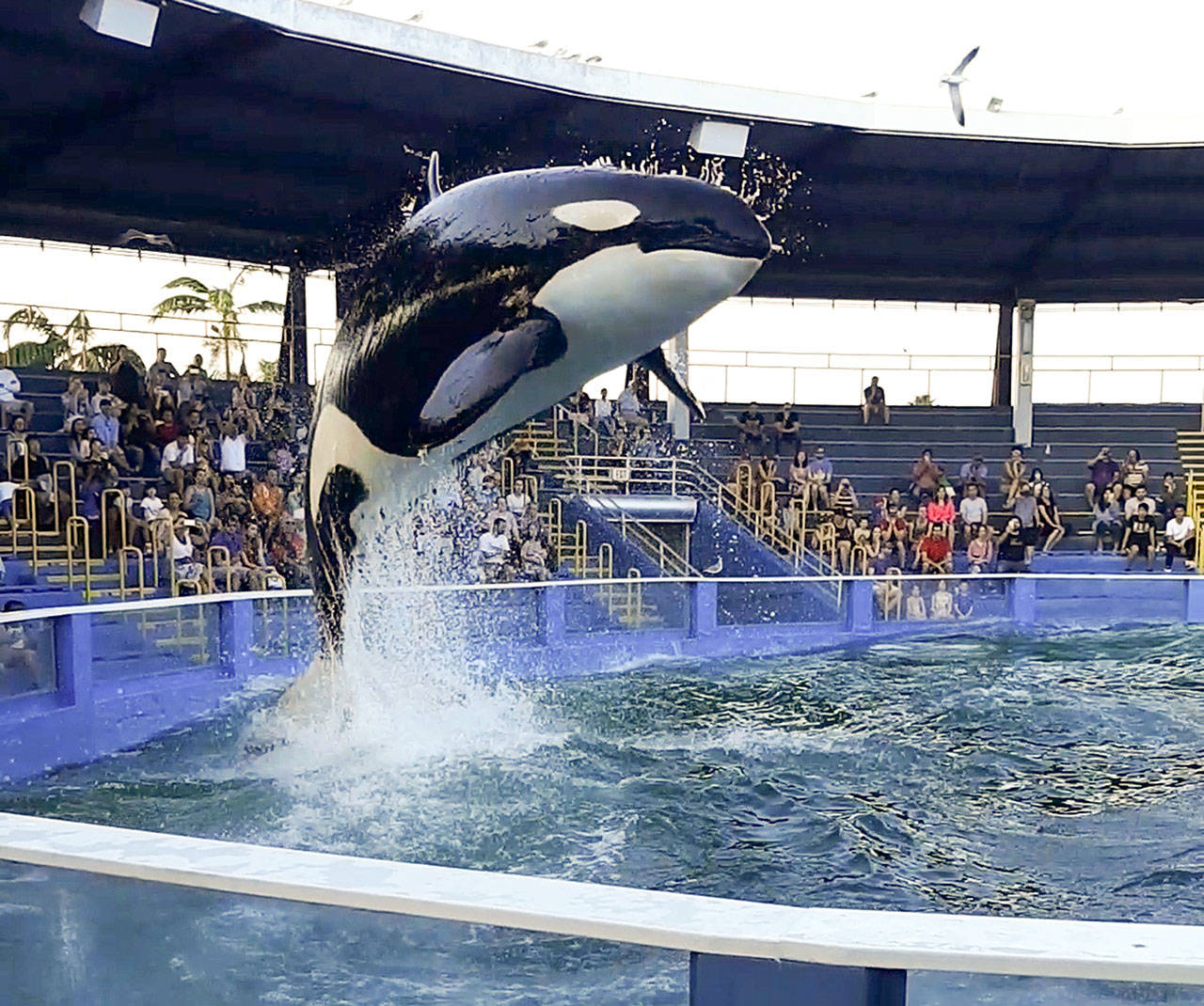Fifty years ago, a group of men in boats and airplanes used explosives and fear to drive a large family of Southern Resident orcas into Penn Cove and ensnare them in nets. Nearly 40 of the whales were captured and 13 killed, including calves that were cut open and filled with rocks to sink to the bottom of the Puget Sound.
The sole survivor of the Aug. 8, 1970 “orca roundup” is still being held in captivity at the Miami Seaquarium. She goes by many names, including Lolita, Tokitae and now Sk’aliCh’elh-tenaut, which was a native village on Penn Cove once located near the site of her capture.
She and the other orcas have not been forgotten over the decades. The Orca Network’s annual commemoration of the tragic event, which spurred important laws protecting marine mammals, moved online to a webinar format because of the pandemic. It is 2-5 p.m. Saturday, Aug. 8. Register at www.orcanetwork.org.
The virtual presentation will include live-streamed waterside ceremonies at various locations, including Penn Cove and Miami, as well as Orcas, Guemes and Lummi islands in the San Juans, according to the Orca Network. There will also be an update about the newest strategies in the ongoing efforts to secure the whale’s release.
Howard Garrett with the Orca Network said there is a new movement with new partners joining forces to prepare Tokitae’s sea pen retirement cove at Orcas Island to be ready if economic forces compel the owners to close the Seaquarium.
Garrett added that, during the webinar on Saturday, the Lummi elders and the attorney representing them will discuss plans to file a lawsuit against the Seaquarium to force the orca’s return under the Native American Graves Protection and Repatriation Act.
Garrett said the whale was last seen in a video from the end of December 2019 and appeared to be in excellent health. Since the Seaquarium’s shutdown because of COVID-19, there haven’t been any updates since then.



